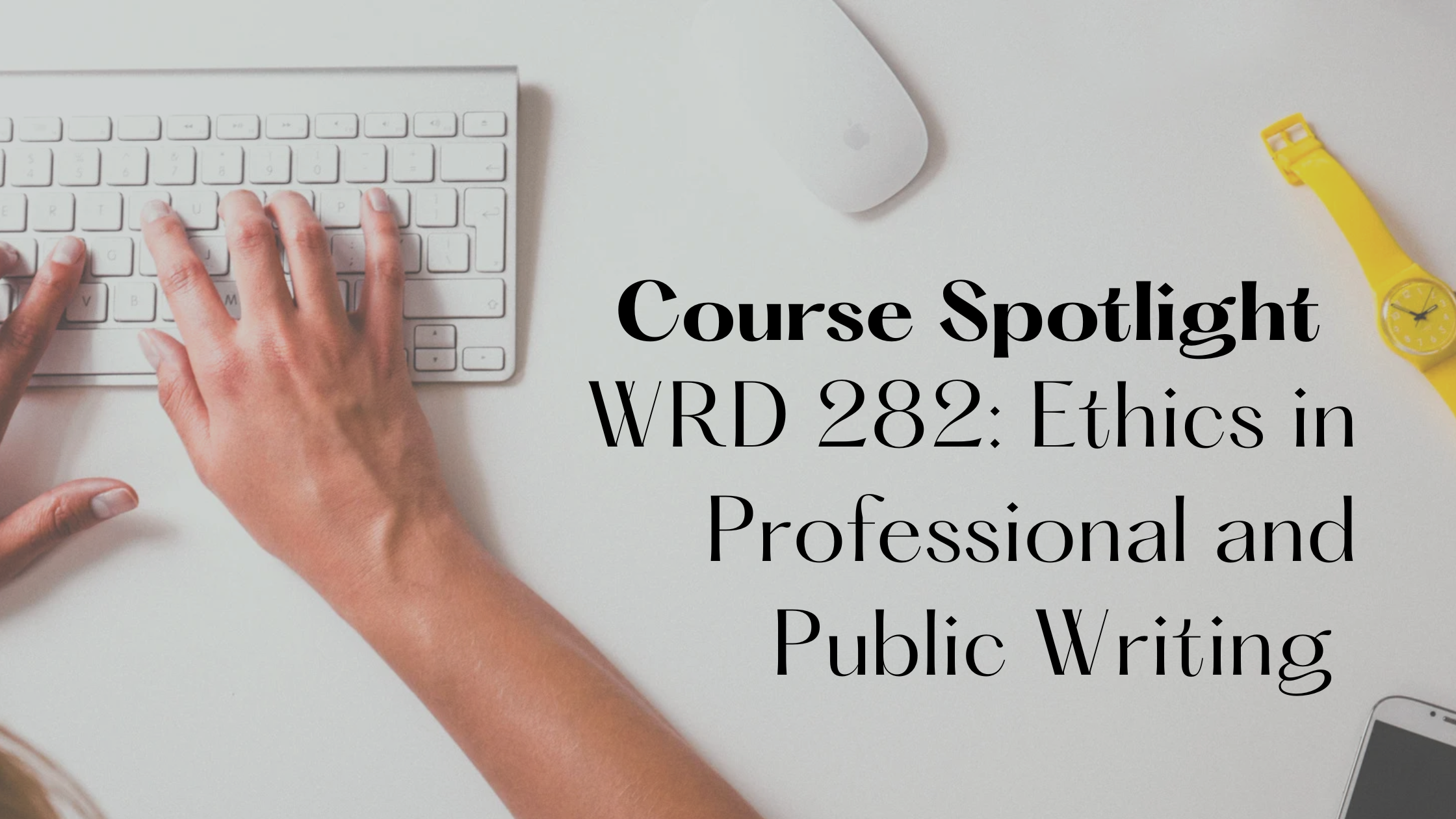Ever faced an ethical dilemma when writing? Dr. Jason Schneider’s WRD 282: Ethics of Public and Professional Writing seeks to unpack the power of ethics within workplace writing and beyond. In this brand-new course, students will get to explore ethical implications within public and professional writing that can be applied to all types of real-world experiences, whether in the workplace or elsewhere. Here, Dr. Schneider provides insight into what students might expect when taking this course during the upcoming Autumn Quarter 2025.
What are your goals for the course and what can students hope to learn?
I think we don’t talk enough about ethics within rhetoric & writing. I know there is a lot of interest in issues that have ethical grounding—for example, social justice issues, issues of equality—and I know that many people want to use and study writing in ways that they believe will cause some version of “good” in the world. But we rarely, if ever, talk about this explicitly in terms of ethics.
At the most basic level, talking about ethics is about trying to understand how our actions, including our actions of writing, affect other people. We can all do that, and we all should do that. But learning how to do that in a more structured way, as we’ll do in this class, involves learning about different ethical frameworks from the field of philosophy, and then using those to work through dilemmas we might face as writers and rhetors. A lot of things in life are not simply “right” or “wrong,” so it helps to have ways to think through our own understandings of what “the good” means to us. This is something I hope students will take away from the class.
How is the course structured?
It’s an asynchronous course that will be structured around weekly modules. Each module will include readings, possibly something to watch (a lecture or a video), follow-up writing tasks to respond to those materials, and possibly one or more discussion posts. Each module will address a theme, and over the 10 weeks we will move progressively, building on previous themes.
What are you most looking forward to in this first iteration of the course?
I’m extremely interested in the discourse of ethics, and I’m looking forward to exploring it with students, especially since it’s not something usually done in WRD classes. I don’t think delving into ethics necessarily makes us “better” people–although, if that happens, it’s a positive outcome. What I like about ethics discourse is that it helps us consider issues from multiple points of view–through multiple systems of belief, which may support diverse arguments for what is “right” in any given situation. Approaching ethics this way doesn’t mean we have to accept all of those arguments, but it can help us see that some things are not as simple or one-dimensional as people like to think.
Why are ethics important in professional writing and writing in general?
We’re all guided by ethical systems that we have acquired through our unique life experiences, and we bring those to our work as writers and rhetors. Usually this happens unconsciously, but if we can learn to become more conscious of our own ethical orientations, and the ideas and systems that matter to us, we’re better prepared to face the ethical challenges that will come our way.
Conclusion
Registration is open, so sign up for WRD 282 with Dr. Schneider today!
To stay up to date with other course offerings, check out the Course Spotlights tab here on the WRD Blog.
